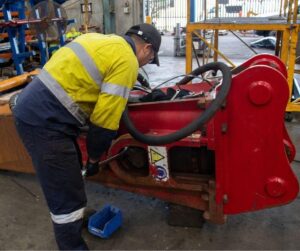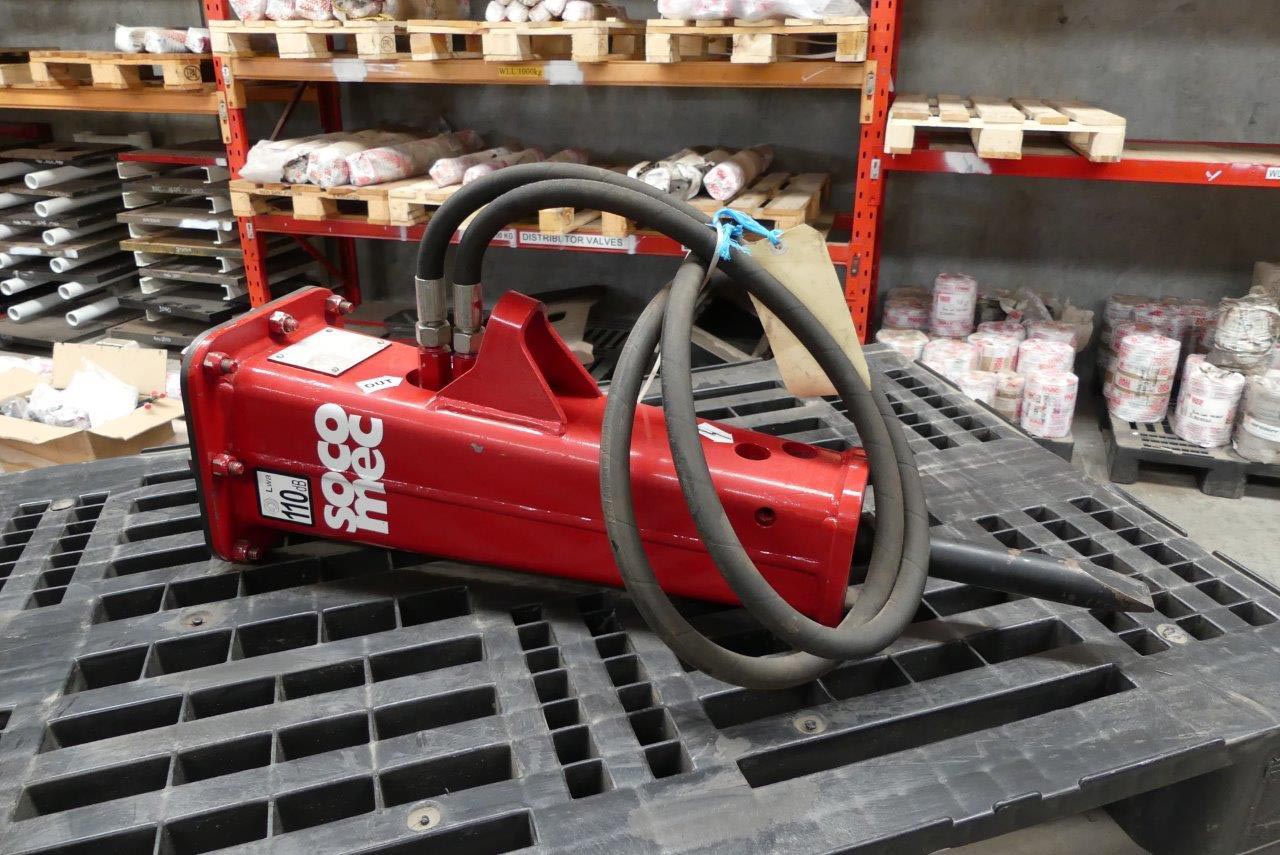 Rock breakers are versatile pieces of equipment described as critical in the process of “breaking objects which are too heavy or large to be broken by less powerful rock crushers”. They are utilised in geology, construction, landscaping, mining, and other industries that require demolition, reduction of heavy materials or excavation. It is likely you have seen a rock breaker in use, or have used one yourself on-site, but are you making sure your equipment is performing at its best?
Rock breakers are versatile pieces of equipment described as critical in the process of “breaking objects which are too heavy or large to be broken by less powerful rock crushers”. They are utilised in geology, construction, landscaping, mining, and other industries that require demolition, reduction of heavy materials or excavation. It is likely you have seen a rock breaker in use, or have used one yourself on-site, but are you making sure your equipment is performing at its best?
Rock breakers are used to break apart concrete, asphalt, rock, and other tough construction materials. Predominantly manufactured from high-grade steel, they are perhaps one of the strongest pieces of machinery on-site at any given moment. They function by focusing force into a small piston which is redirected through hydraulic hoses to apply massive force into the surface of the target material to demolish or reduce it down.
The heavy work done by rock breakers and hammers will obviously result in wear and tear. To ensure all parts of the rock breaker are functioning at its highest potential, regular maintenance checks should be completed. These checks, as outlined in Equipment Today must include:
Checking Hydraulic Hoses
Hydraulic hoses are the main drivers of the incredible force of a rock breaker/hammer. The hoses are generally made of strong, flexible materials that should be measured to fit the equipment it is fixed to – the correct measurements of this hosing will vary on the size of the breaker head but should not be so long that it gets caught on rebar or debris, nor should it be so short that wear and tear occurs rapidly as it is forced to stretch to its limit every use.
Greasing the Attachment
A lubricated hydraulic breaker is a healthy hydraulic breaker. Greasing the attachment serves many vital functions: it clears the tool bushing areas of debris, prevents friction between metal components and withstands high temperatures to make this protection last longer than other lubricants. Many breakers are fitted with automatic greasing units to simplify this maintenance task.
Checking Nitrogen Pressure Levels
Nitrogen pressure is something which will change with the weather – literally. Checks and adjustments of nitrogen pressure levels must occur with every job and requirements of this pressure will depend on the temperature of the location you are conducting work. The pressure required to break up asphalt on a road will be different than that required to demolish a wall of concrete. Ensure the operator and supervisor of this project are aware of this and factor in all conditions to make sure the breaker/hammer can perform well for longer.
Completing Visual Inspection
Taking the time to inspect the machinery is vital to ensure safety and efficiency when operating it. Parts of the rock breaker or hammer that should be checked closely to ensure no visual chips or fractures include the piston and the tie rods. Any type of damage noticed in a visual inspection should be noted and the equipment should not be used until it is repaired.
The ever-evolving engineering space has seen massive improvements to these machines in recent years. Socomec has released their DMS range of rock breakers and hammers which were developed to move away from tie rods; instead, these attachments are manufactured as a sole piece with a fully forged rod. The Socomec DMS range eliminates the risk of tie rods wearing out and needing repair, making the durability and reliability of the machinery last longer. The addition of automatic greasing units is also an example of developments to reduce laborious checks and manual lubrication.
Conducting routine checks of the heavy machinery you rely on in your projects will save time and money in the long run. Identifying damage because of wear and tear before it gets to breaking point is a way to ensure your equipment (and your team) stays safe and operates at its peak performance.
Heavy machinery requires TLC to make sure it works with you, not against you. If you find yourself wondering about the last time you had your equipment professionally serviced, it probably means it was too long ago. At Contatore Engineering, we take great care in the repair and maintenance work required to ensure you can continue to get the work done.

